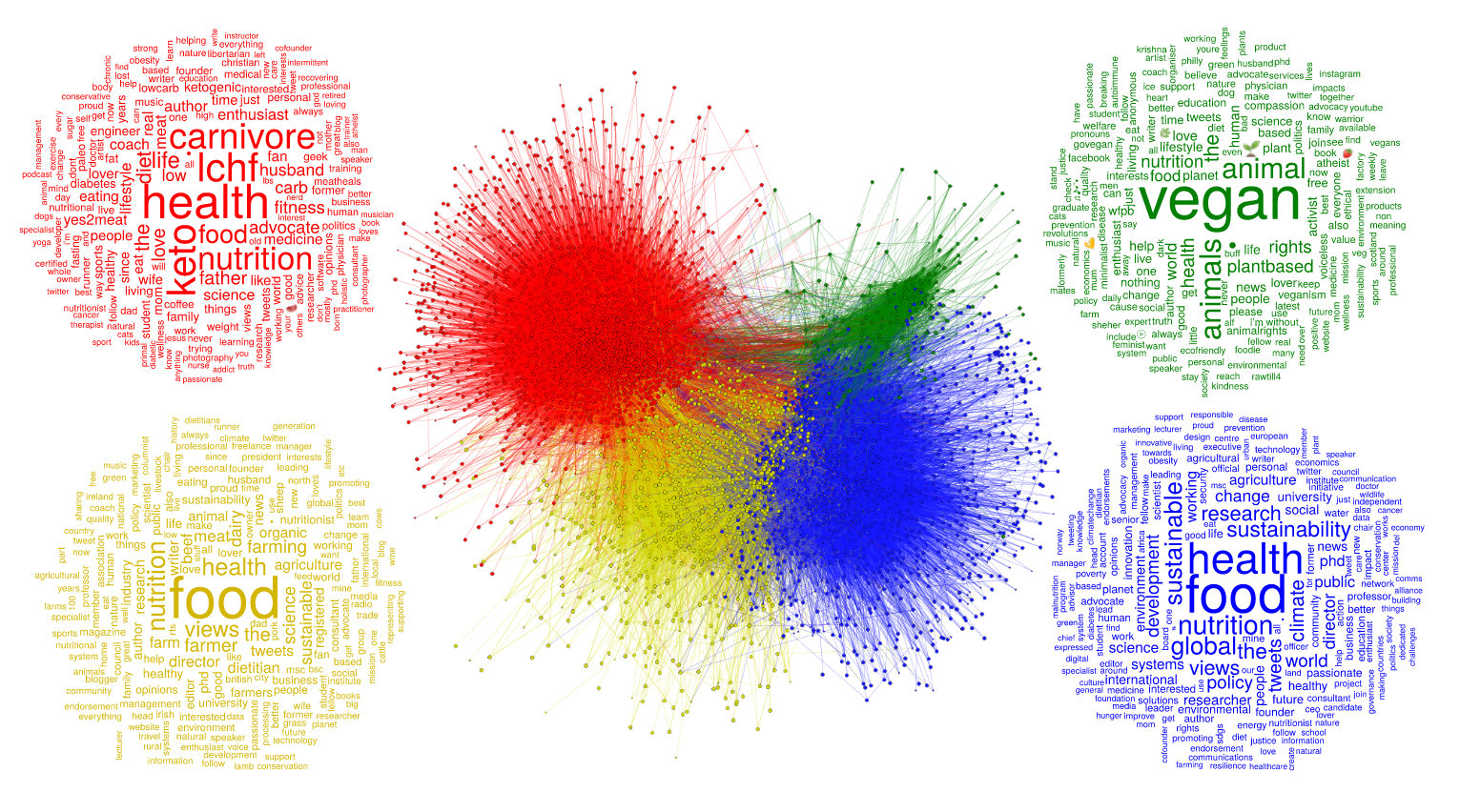David Garcia, Victor Galaz, Stefan Daume
The Lancet, Vol. 394, Issue 10215 (2019)

Food production, climate change, and human health are intrinsically related. The EAT–Lancet Commission is one of the first attempts to summarise and communicate the best available science on what constitutes a healthy diet within environmental targets. The launch of the report was paralleled by several international launch events, including a social media campaign with its own hashtag: #EATLancet. Although the report was positively received by established international media outlets such as The Guardian and The New York Times, it also led to highly polarised debates online including misinformation, conspiracy theories, and personal attacks along with the hashtag #yes2meat. The controversies online associated with the EAT–Lancet Commission, we believe, show how a rapidly changing media landscape and polarisation pose serious challenges to science communication on health and climate issues. To understand the effect of this controversy, we have collected and analysed a dataset of Twitter activity linked to EAT–Lancet and yes2meat with 4278 Twitter users and 8.5 million tweets. Our analysis confirms that a digital countermovement managed to organise rapidly, essentially dominating online discussions about the EAT–Lancet report in intriguing and worrying ways.
Links
Selected Media Response
- Quartz – How pro-meat Twitter scrambled the rollout of the planetary health diet
- Der Standard – Fleischesser lancierten Twitter Kampagne gegen Lancet-Forscher
- ORF – Fleischfans gegen „Planetary Diet“
- El Pais – Los defensores de la carne plantan cara a los científicos que aconsejan reducir su consumo
- RNE 3 – Entrevista para hoy empieza todo